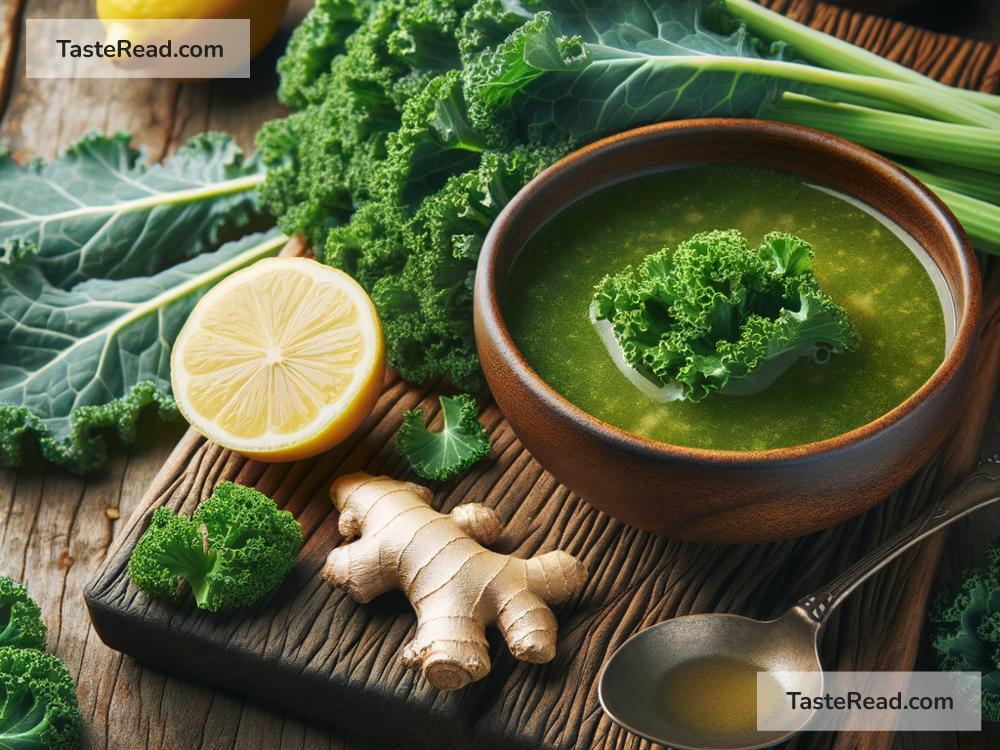Can Kale Improve Digestion?
Kale is often called a superfood, and it’s easy to see why. Packed with vitamins, minerals, and antioxidants, this leafy green has gained popularity among health-conscious people all over the world. But aside from boosting your overall health, can kale actually improve digestion? Let’s take a closer look at how kale can benefit your gut, why digestion is important, and simple ways to enjoy kale in your meals.
Why Digestion Matters
Digestion is the process of breaking down the food you eat into nutrients your body can absorb. A healthy digestive system is crucial for energy, immune function, and overall health. If your digestion isn’t working properly, you might experience issues like bloating, constipation, or low energy levels. That’s why it’s important to eat foods that support your digestive system—and kale is one of those foods.
Kale: A Nutrient Powerhouse
First, let’s talk about what makes kale so special. Kale is rich in vitamins A, C, and K, which help your body stay healthy. It also contains minerals like magnesium, calcium, and potassium that are essential for your muscles, bones, and overall wellness. But when it comes to digestion, two key nutrients in kale stand out: fiber and antioxidants.
How Kale Improves Digestion
- Kale Is High in Fiber
Fiber is a type of carbohydrate that your body can’t digest, which makes it an essential part of a healthy digestive system. It helps keep food moving through your intestines, reduces constipation, and prevents bloating. Just one cup of raw kale contains about 2 grams of fiber, which contributes to your daily fiber needs.
There are two types of fiber—soluble and insoluble—and kale has both. Soluble fiber absorbs water and creates a gel-like substance, helping your gut stay hydrated and promoting smooth digestion. Insoluble fiber provides bulk to your stool, making it easier to pass. Together, these fibers keep your digestive system running smoothly and efficiently.
- Kale Supports Healthy Gut Bacteria
Fiber doesn’t just help with bowel movements—it also feeds the good bacteria in your gut. These bacteria play a key role in digestion, immunity, and even mental health. When you eat foods like kale that are high in fiber, you’re giving these beneficial bacteria the nutrients they need to thrive. A healthy gut microbiome can lead to better digestion and reduced inflammation.
- Antioxidants in Kale Reduce Inflammation
Kale is rich in antioxidants like vitamin C and beta-carotene. These compounds help fight inflammation in your digestive tract. Chronic inflammation can cause digestive problems such as irritable bowel syndrome (IBS) or ulcerative colitis. By eating antioxidant-rich foods like kale, you’re protecting your gut lining and promoting better overall digestion.
- Kale Promotes Stomach Acid Balance
Kale contains minerals such as magnesium and potassium that help balance stomach acid levels. Having the right amount of stomach acid is essential for breaking down food effectively. If your stomach acid levels are too high or too low, you may experience digestive discomfort like acid reflux or poor nutrient absorption. Kale’s mineral content supports a healthy stomach environment.
Tips for Adding Kale to Your Diet
So, now that you know how kale can help your digestion, you might be wondering how to eat it. The great thing about kale is that it’s super versatile! Here are a few easy ways to incorporate kale into your diet:
-
Make a Kale Salad
Raw kale works well in salads, but since it’s a bit tougher than other leafy greens, it’s best to massage it first. Rubbing the leaves with olive oil and a pinch of salt softens the texture and makes it easier to chew and digest. -
Blend It into Smoothies
Adding a handful of kale to your favorite smoothie is a quick and tasty way to get its digestive benefits. Pair it with fruits like bananas, mangoes, or berries to balance the flavor. -
Toss It into Soups and Stir-Fries
Kale holds up well when cooked, so it’s a great addition to soups, stews, and stir-fries. Cooking it lightly can also make it easier to digest for people with sensitive stomachs. -
Bake Kale Chips
For a fun and healthy snack, try baking kale chips. Just toss kale leaves in olive oil, sprinkle on some seasoning, and bake them in the oven until crispy. -
Sauté Kale with Garlic
A quick sauté with olive oil and garlic creates a flavorful side dish that pairs well with almost any meal. Garlic has digestive benefits too, making this combination a powerhouse for gut health.
Can You Eat Too Much Kale?
Even though kale is great for digestion, it’s important not to overdo it. Eating too much kale can cause bloating or gas in some people because it’s high in fiber. Kale also contains natural compounds called oxalates, which can affect people prone to kidney stones. If you’re new to eating kale, start with small portions and see how your body responds.
Final Thoughts
Kale is one of the healthiest foods you can add to your diet, especially if you’re looking to improve your digestion. Thanks to its fiber, antioxidants, and minerals, kale helps keep your gut healthy and functioning optimally. By incorporating kale into your meals in creative and delicious ways, you can enjoy its digestive benefits while boosting your overall well-being. So, the next time you’re at the grocery store, grab a bunch of kale and show your stomach some love!


